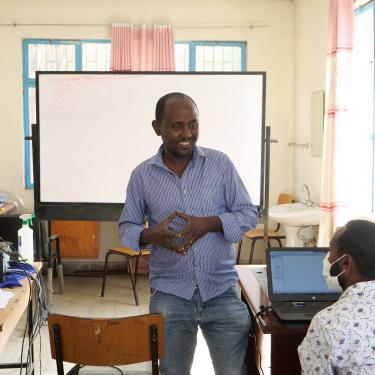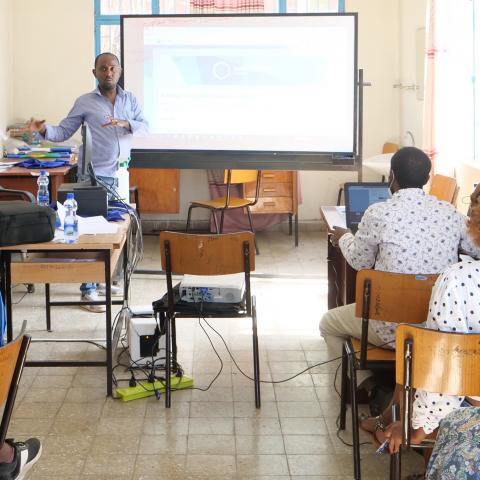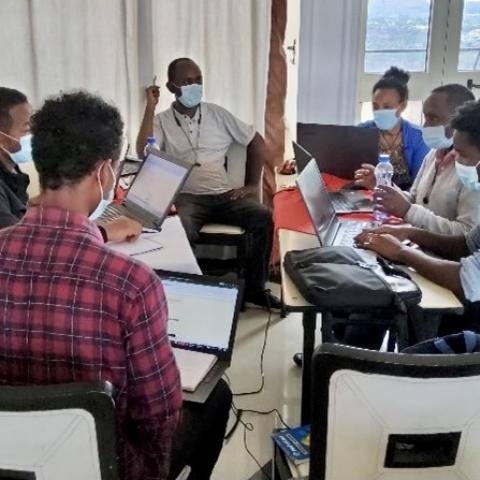
Creating holistic change in Ethiopia's water sector
My name is Zewdu Assefa and I work at the Ethiopian Water Technology Institute (EWTI) as a trainer and capacity building projects coordinator. I enjoy meeting and training grassroots operators in the water sector. They are often not noticed and they don’t get formal instruction, so operation and maintenance is also a major challenge for them. It makes me very happy seeing someone solve problems in his own workplace after he receives training from us.


The demand for training is huge
One of the major challenges I observe is that there is a huge demand in Ethiopia for more training but the capacity is quite limited. EWTI is the only organization to provide hands on training programs in the country. It’s estimated that more than 50,000 professionals are working in the water sector throughout the country, yet the maximum enrollment capacity of EWTI is about 1,300 per year.


Operation and maintenance is a major challenge
The main problem in the water sector in Ethiopia is an operation and maintenance one. The water resource in the country is tremendous and unpolluted, although there is a difference from place to place. Some areas may have a rich amount of water and some areas may have limited resource, but if you utilize the existing one and just organize the systems around it to support and sustain it, everybody can access that water. I cannot say the resource is a challenge but operation, maintenance and use of this untapped resource is a major challenge in my country. From a systems perspective in Ethiopia’s water sector, there is a lack of integrated planning, and management of the water resource.
For me collaboration with others is key. I'd like to have a holistic change in Ethiopia's water sector.
